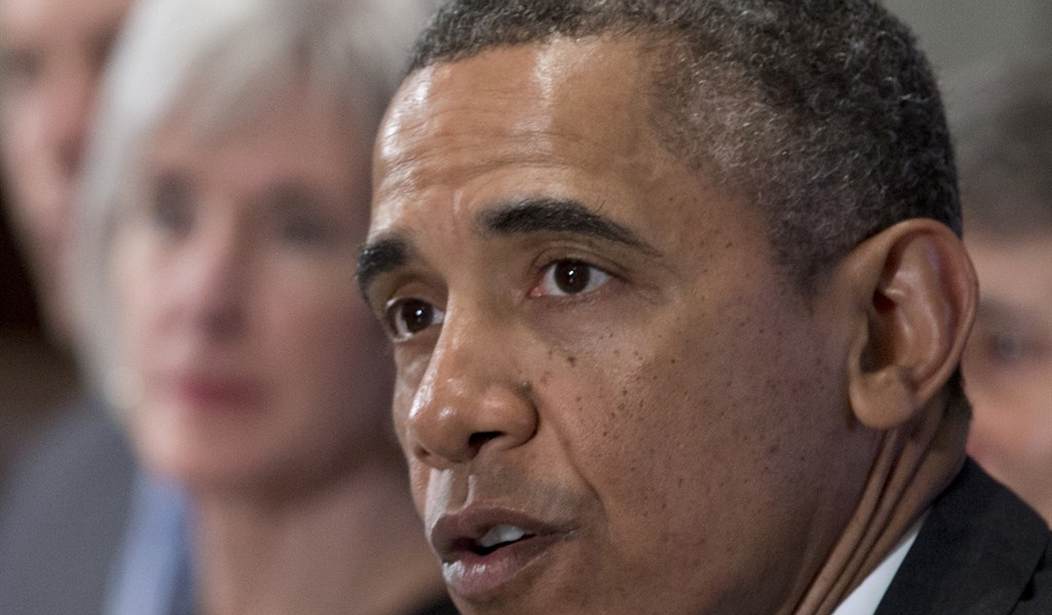In September 2010, six months after signing the Affordable Care Act and just weeks before his party's massive losses in the midterm elections, President Obama wondered whether the law's unpopularity might be due to a communication failure on his part. "Sometimes I fault myself,"he told an audience in Virginia, "for not having been able to make the case more clearly to the country."
There was nothing wrong with the president's communication skills. The case he made for his sweeping health care overhaul was straightforward and appealing: It would make health insurance available to every American, especially the more than 40 million people who were uninsured. It would significantly reduce insurance premiums for individuals and families. It would guarantee that Americans who already had a health plan they liked, or a doctor they liked, would be free to keep them.
The case for ObamaCare was perfectly clear. But those claims rang false even before the law was passed. Nothing is left of them now — and another midterm election season is underway.
The Affordable Care Act turned 4 years old this week, as unpopular as ever. It has been underwater in hundreds of national polls, frequently by double-digit margins. Despite the elaborate and relentless marketing campaign the White House and its allies mounted in support of the law, Americans don't like it any better now than they did back when Democrats muscled it through Congress over unified Republican opposition.
By its proponents' own empirical benchmarks, ObamaCare has been a debacle. The rosy promises about no one being forced to change doctors or health plans have been ditched. So has the enticing prospect of $2,500 premium reductions for every family. Instead, the "Affordable" Care Act in most states is driving up underlying premiums, even doubling them in some parts of the country.
Voters rewarded the GOP for standing fast against the law four years ago, and there is a growing sense that they're going to do so again this fall. Obama has been warning Democrats for months that they are likely to"get clobbered" at the polls this November. It's not just widespread disapproval of the president's signature legislation that makes his party so vulnerable — it's the intensity of that disapproval. "The people who favor ObamaCare, which is a minority, aren't really that enthusiastic about it even if they favor it," says political analyst Larry Sabato of the University of Virginia. "But the majority who oppose ObamaCare are much more charged up, and they're the people who tend to turn out" for midterm elections.
Recommended
It had been widely assumed on both sides of the debate that as the Affordable Care Act was implemented, the law's frontloaded benefits and subsidies would quickly become such sacred cows that repealing the law would soon be a political impossibility.
So far it hasn't worked out that way. Most Americans haven't come around to accepting the massive law and its unprecedented mandates as a permanent feature on the landscape. Ardent liberals, such as House Minority Leader Nancy Pelosi, have been telling Democrats to run as unabashed defenders of ObamaCare,insisting "it's a winner" of an issue for them. But it proved a losing issue for Democrat Alex Sink, who was beaten in Forida's special congressional election this month by Republican David Jolly. ObamaCare was a key issue in the race, which pitted Jolly's "repeal and replace" message against Sink's "don't nix it, fix it" theme. The pro-repeal candidate won.
A single special election doesn't prove a GOP sweep is coming, but the outcome in Florida wasn't lost on Scott Brown, who knows better than most what it's like to win a special election on the strength of an anti-ObamaCare refrain. "A big political wave is about to break in America, and the ObamaCare Democrats are on the wrong side of that wave," Brown told a Republican crowd in Nashua three days after Sink's defeat. "If we don't like ObamaCare, we can get rid of it. Period."
That was probably overstating it. Politics is the art of the possible, and even with a slew of midterm pickups, it would be impossible for opponents of ObamaCare to "get rid of it — period." But there is nothing impossible about replacing the Democrats' unpopular monstrosity of a law with alternatives that expand freedom and competition in health insurance, rather than suppressing them. Four years of ObamaCare have shown what arrogance, deception, and top-down control can accomplish. No wonder voters want to see if Republicans can do better.

























Join the conversation as a VIP Member